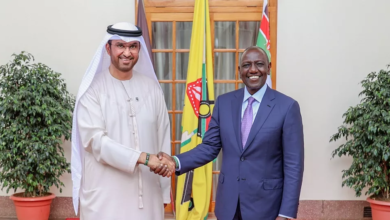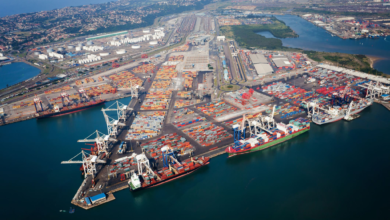South Africa: solar energy meant to empower office barons
L’utilisation de l’énergie solaire comme alternative à l’électricité se répand dans les quartiers pauvres et dans les zones rurales africaines. Mais le solaire s’intéresse aussi aux zones urbaines, en ciblant les propriétaires de biens immobiliers et commerciaux par un système de préfinancement. Retour sur un business plan encore en devenir avec l’exemple sud-africain.
The use of solar energy as an alternative to electricity is very popular in impoverished and rural settlements throughout Africa. But scales are expected to shift to urban areas as a new initiative targeting business property owners is taking South Africa by storm.
The International Energy Agency estimates 585 million people in sub-Saharan Africa lack access to electricity with the electrification rate as low as 14.2% in rural areas. According to reputable power research website, Power Quality and Renewable Services, 2 billion was invested in the private photovoltaic sector last year. This immense growth can also be attributed to several companies and office parks – such as BrightBlack Energy – embracing photovoltaic solar panels on their properties as they aim at cutting energy costs.
Solar power and property yields
A new venture that will see off-grid solar power being used as an engine to earn money and improve property yields is on the cards. Aptly named Alternative First Energy, the R100 million 50-50 joint venture between Rand Merchant Bank and a solar firm BrightBlack energy is going to explore unchartered ground.
The venture will see Alternative First Energy installing solar panels at properties and taking a step further to finance them. Alternative First energy believes that landlords who invest in solar power are highly likely to improve their yields because solar power cuts properties’ utility bills. This in turn helps the property owner rakes in more profits.
“In normal circumstances property owners are satisfied with a profit yield of about 8%. Solar in turn pushes that yield up to 12%. Some of our clients are already getting as much as 20% profit on their yield, » said BrightBlack Energy CEO, Weasel Weasels.
Getting the most of solar through bulk installations
Greg McKenzie, an investment banker at RMB and joint CEO of this innovative initiative, hinted that Alternative First Energy will collect multiple rooftop solar projects in diverse commercial and industrial parks to build a portfolio of up to R1 billion.
With such a large investment, they would then be able to secure debt financing against this.
”We are going big from the very onset of the project. The average size of rooftop photovoltaic installations was between R2 million and R25 million. This was marginally too small to excite RMB. When you bulk this into a portfolio, the opportunities are always compelling, » he hinted.
Property owners spoilt for choice
Property owners who are always on the lurch for profit will be spoilt for choice as they have three options to choose from.
The property owner will firstly have the option of out rightly buying the infrastructure. Secondly, if a property owner is in the hunt for cheaper power then a power purchase will be the best ticket to grab. Lastly, if a developer wants a better property lead then leasing out the infrastructure would be the best option.
Some of the companies that have already embraced this profitable initiative include Emira Profit Fund which has installed a R6 million solar farm in Africa’s richest square mile of Sandton. Global chartered accountants firm KPMG have also installed these solar panels at their offices in Park town.
Weasels believes that as more property barons come on board, the portfolio is able to exceed R500 million within the next 12 to 16 months.







